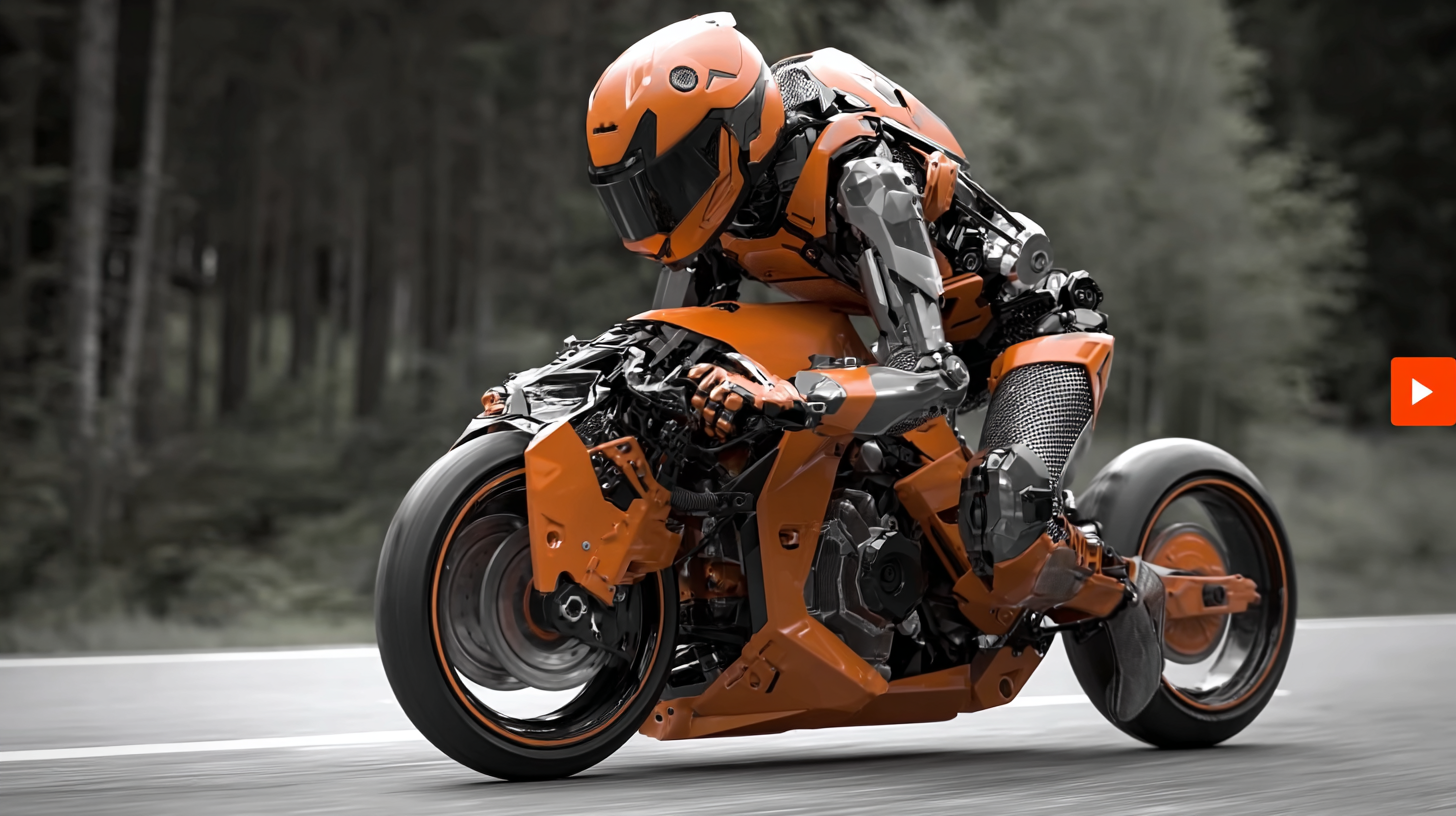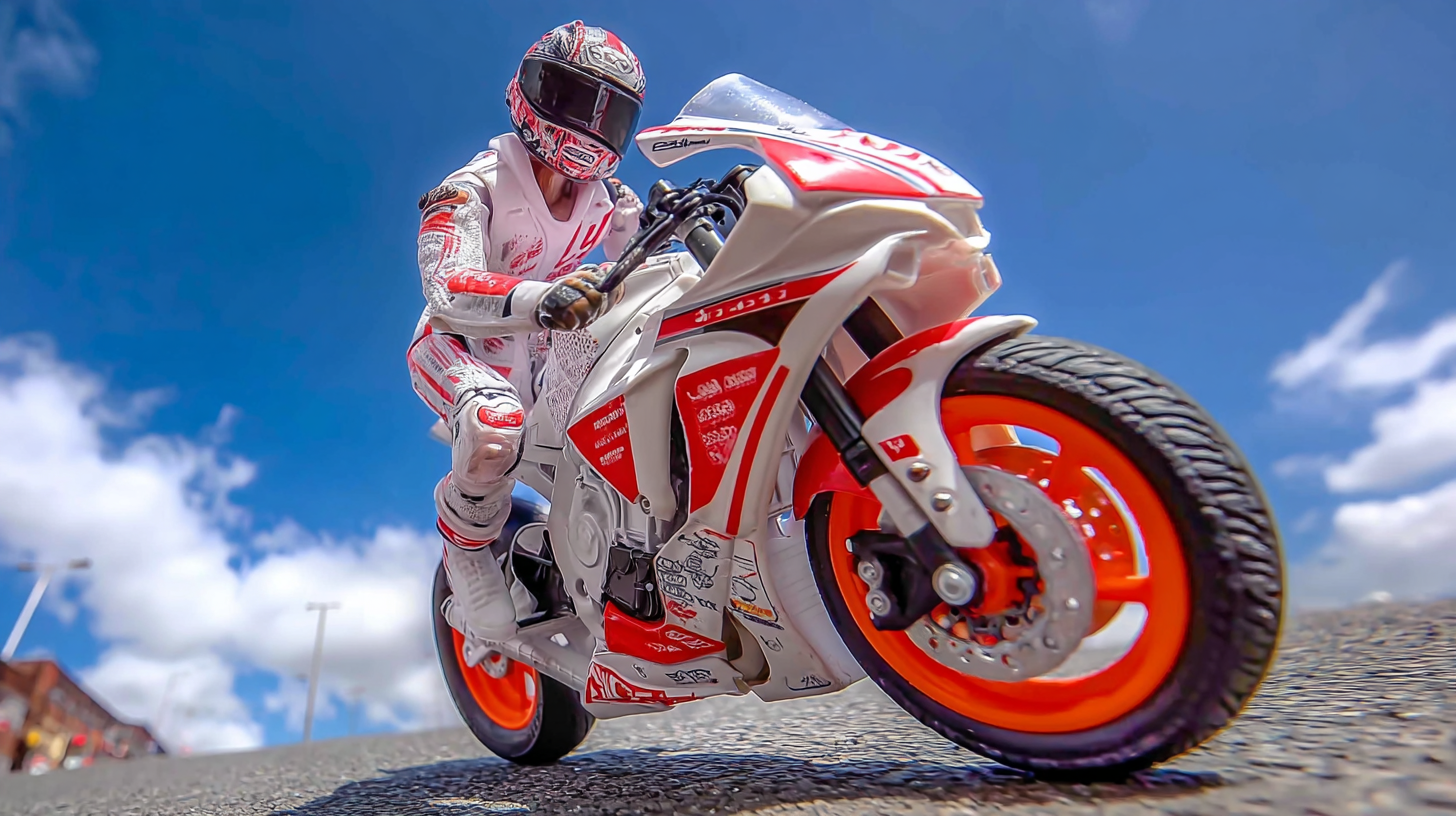
What is the Significance of Best RC Motorcycle Technology in Modern Transportation
In recent years, the evolution of RC motorcycle technology has emerged as a pivotal component in the landscape of modern transportation. As we look towards the technological trends of 2025, it's clear that the innovations within this niche are not only reshaping recreational activities but also influencing broader transportation paradigms. The significance of best RC motorcycles transcends mere entertainment; they serve as a testing ground for advancements in design, engineering, and even sustainability. Moreover, these miniature marvels highlight the potential for enhanced maneuverability and safety features that could inspire future full-sized vehicles. In this blog, we will explore the impact of RC motorcycle technologies, analyze upcoming trends, and provide a checklist of essential considerations for enthusiasts and manufacturers alike. Join us as we delve into why these small wonders are set to revolutionize the way we think about transportation.

The Evolution of RC Motorcycle Technology: Key Milestones and Innovations
The evolution of remote-controlled (RC) motorcycle technology has been marked by several key milestones that have significantly influenced both the hobbyist community and the broader transportation sector. In the early days, RC motorcycles were rudimentary and primarily designed for basic maneuverability. However, advancements in materials and electronics soon led to the development of more sophisticated models featuring improved durability and enhanced performance. The introduction of rechargeable batteries also eliminated the need for constant battery replacement, making these toys not only more eco-friendly but also more user-friendly.

As technology progressed, innovations such as gyro stabilization systems and advanced radio frequencies transformed the way enthusiasts interact with their RC motorcycles. These features have allowed for greater control and precision, simulating real motorcycle dynamics. Today, the integration of smart technology, including smartphone apps for customized tuning and real-time telemetry, elevates the experience further. This evolution reflects a broader trend in transportation technology, where the incorporation of simulation and real-time feedback is paving the way for future advancements, potentially influencing the design and functionality of real-world motorcycles.
Impact of Advanced Materials on the Performance of RC Motorcycles
The evolution of RC motorcycle technology has been significantly influenced by the incorporation of advanced materials, which has transformed both performance and design. High-strength composites and lightweight alloys have replaced traditional materials, resulting in motorcycles that are not only faster but also more maneuverable. These innovative materials enable manufacturers to reduce the overall weight of the vehicle while maintaining structural integrity, leading to improved speed and handling dynamics. As a result, riders can enjoy a more responsive and agile experience, pushing the limits of what these miniature machines can achieve.
Furthermore, the introduction of advanced materials also enhances durability and performance under various conditions. For instance, the use of carbon fiber reinforces critical components, allowing RC motorcycles to withstand high stress during competitive racing or off-road challenges. This durability ensures that racers can focus on performance without the constant worry of mechanical failures. In addition, advanced materials exhibit resistance to environmental factors, which is vital for prolonged outdoor usage. As technological advancements continue, the future of RC motorcycles promises to further integrate these high-performance materials, continuously elevating the standards of modern transportation in the RC realm.
Global Market Trends: The Rising Demand for High-Quality RC Motorcycles
The global market for remote-controlled (RC) motorcycles has witnessed significant growth in recent years, driven by advancing technology and an increasing consumer fascination with quality. According to a recent industry report by MarketsandMarkets, the RC vehicle market, including motorcycles, is projected to reach $4.2 billion by 2026, growing at a CAGR of 8.5%. This surge can be attributed to factors such as improved battery life, enhanced design features, and the integration of smart technology that elevates user experience and functionality.
As demand rises, manufacturers focus on producing high-quality RC motorcycles that not only provide better performance but also incorporate user-friendly features. This includes longer operational times, responsive controls, and sturdier designs that cater to both beginners and enthusiasts. The diverse uses of RC motorcycles, from recreational purposes to serious hobbyist competitions, further underline their relevance in today’s tech-driven market.
**Tips:** When selecting an RC motorcycle, consider the scale and purpose it serves. For competitive racing, prioritize speed and aerodynamics, while for casual use, choose models that offer durability and ease of control. Additionally, always check for customer reviews to ensure you invest in a reliable brand that meets your needs.
The Significance of Best RC Motorcycle Technology in Modern Transportation
This bar chart illustrates the rising demand for high-quality RC motorcycles from 2020 to 2024, highlighting the growing significance of advanced RC motorcycle technology in modern transportation. As the years progress, the demand demonstrates a notable upward trend, reflecting consumer interest and market dynamics.
China's Contribution to RC Motorcycle Manufacturing and Export Potential
China has emerged as a powerhouse in the realm of RC motorcycle manufacturing, significantly shaping the landscape of modern transportation technology. The country's robust infrastructure, combined with its vast pool of skilled labor and extensive experience in manufacturing, has positioned it as a leader in producing high-quality remote-controlled motorcycles. Chinese manufacturers utilize advanced engineering techniques and cutting-edge technology to create innovative designs that cater to both hobbyists and commercial applications. This emphasis on quality and innovation has not only made Chinese RC motorcycles popular domestically but has also paved the way for a growing export market.
The export potential of China's RC motorcycles is considerable, as demand for these products continues to rise worldwide. Countries with thriving automotive and recreational industries are increasingly seeking high-performance RC motorcycles, and Chinese manufacturers are well-equipped to meet this demand. By leveraging competitive pricing and technological advancements, China can provide options that attract global buyers. Furthermore, the growing interest in electric and sustainable transportation solutions further enhances the appeal of Chinese RC motorcycles, encouraging international partners to collaborate and invest in this dynamic sector. With its ongoing focus on innovation and quality, China is poised to continue leading the charge in the RC motorcycle market.
Future Prospects: Integrating Smart Technology in RC Motorcycle Design and Use
The integration of smart technology into the design and use of RC motorcycles is set to revolutionize the hobbyist landscape. According to a recent industry report by the International Robotics Association, the market for remote-controlled vehicles is projected to grow by over 12% annually through 2025, driven primarily by advancements in technology. Smart features like GPS tracking, real-time telemetry, and enhanced communication between devices are already transforming how enthusiasts interact with their RC motorcycles. These innovations not only improve user experience but also minimize the risk of loss during racing events.
To truly harness the potential of these technologies, hobbyists should consider investing in models equipped with IoT capabilities. Incorporating sensors for performance metrics can provide valuable insights into operation efficiency, while software updates ensure that the equipment remains at the cutting edge. Additionally, utilizing dedicated mobile applications enhances connectivity, allowing users to monitor and adjust settings on-the-go.
Remember, staying up-to-date with the latest technological advancements is paramount. Engage with online forums and attend expos to share knowledge and gain insights into emerging trends in RC motorcycle technology. By doing so, you not only enhance your experience but also become part of a community that drives innovation forward.
